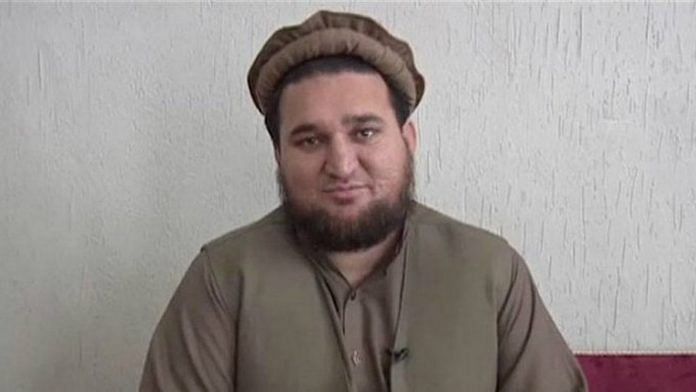The escape from detention of Ehsanullah Ehsan, the terrorist who became the public face for attacks on Nobel laureate Malala Yousafzai and the 2014 Peshawar Army Public School massacre that killed 134 students and 15 staff members, will inevitably raise questions, again, about Pakistan’s resolve to eliminate terrorist safe havens from its soil.
Although not directly related to terrorism financing, Ehsan’s escape will undoubtedly resonate at the next meeting of the Financial Action Task Force (FATF) when it considers Pakistan’s request to remove it from the international money laundering watchdog’s grey list.
The fact that a high-profile terrorist not only escaped prison but was also able to leave the country undetected does not speak well of the promised crackdown on the various terrorist groups operating in Pakistan for decades.
Also read: Imran Khan can’t get away by blaming America for Pakistan’s jihad problem
Failed promises
Since 9/11, successive Pakistani military and civil leaders have announced their intention to shut down the jihadi groups that first surfaced in the 1980s. Each time, arrests of terrorist leaders and the banning of various groups have been announced amid much fanfare, usually in response to international pressure.
Officials sympathetic to Pakistan in the British Foreign Office and the US State Department, as well as some military officers from the two English-speaking powers have declared each round of promises and arrests as reason to trust Pakistan’s intentions.
It is often argued that the current army chief General Qamar Javed Bajwa is the man most committed to dismantling Pakistan’s terrorist infrastructure.
Critics, including this writer, have noted that the Pakistani establishment sees the jihadis who have gone out of control as misguided elements, not as enemies of the state who must be vanquished.
Even though many Pakistani soldiers have died while fighting the jihadi extremists, the country’s establishment treats the jihadis more gently than it treats political dissidents or nationalists it deems as separatists.
Cycles of crackdowns on terrorist groups have been followed by easing of pressure, attracting labels of ‘revolving door’ and ‘catch and release’ for Pakistan’s approach to terrorist leaders. Ehsan’s case seems to strengthen the argument of the critics.
Also read: Pakistan’s long-ailing democracy is now completely dead, thanks to its political parties
An unconvincing account
For years, Ehsan acted as a spokesman for Tehrik-i-Taliban Pakistan and its Afghanistan-based offshoot, the Jamaat-ul-Ahrar . The groups were born out of the Pakistan-supported Afghan Taliban and were initially tolerated by Pakistani authorities. They eventually became the ‘bad Taliban’ when their clerical leaders declared war on Pakistan’s Army in the tribal areas bordering Afghanistan.
Ehsan took responsibility on behalf of the Pakistan Taliban for its attacks on Malala Yousafzai, on Shias in Karachi and Rawalpindi, on tourists in Gilgit Baltistan, on Christians in Lahore, and on the Bacha Khan International Airport in Peshawar, among many others.
After being on Pakistan’s ‘most wanted’ list of terrorists and carrying a bounty of $1 million on his head, Ehsan had surrendered to the Pakistan Army in 2017. The Pakistani military described, as reported by The New York Times back then, his surrender as “a significant victory in efforts against the remnants of the Pakistani Taliban”.
But last week Ehsan released an audio recording, shared via an online private messaging platform, announcing that he had escaped from jail on 11 January. He reportedly later told journalists that he had safely reached Turkey, raising questions not only about the leniency of his detention terms but also of Pakistani border security and Turkey’s alleged willingness to host him.
Although there has been no official reaction yet to Ehsan’s escape, retired generals who speak for the army on Pakistani television talk shows have tried to explain what happened.
Ehsan, they say, was never a combatant and was helping the army in identifying and apprehending his former colleagues after his surrender. He was treated well for that reason. Apparently, the terrorist kingpin took advantage of the leniency afforded to him and ran away.
But that account neither explains how he left the country nor does it reflect well on the effectiveness of Pakistan’s plans to mainstream jihadis.
Also read: How will military generals solve economic issues? Why Pakistan is stuck in a broken carousel
Pakistan’s real enemies
Ehsan’s escape raises the same question that was raised when Al-Qaeda founder Osama bin Laden was found and killed in Pakistan’s Abbottabad by the United States: Was it the result of collusion or incompetence on part of Pakistan’s state apparatus?
That brings us to the underlying problem with Pakistan’s approach to its jihadi problem. While concerns about domestic terrorism and pressures from the international community have resulted in sporadic action against terrorists on Pakistan’s part, the establishment’s doctrine does not see terrorism the same way as the rest of the world does.
The Pakistani establishment thinks that Pakistan’s security priority is still to deal with the ‘permanent threat’ posed by India and Afghanistan, as well as by those Pakistanis who have a worldview different from that of the establishment.
Jihadis are useful for sub-conventional warfare in Afghanistan and against India. That is why the state does not crack down on them the same way it crushes those it considers Pakistan’s real enemies.
It is inconceivable, for example, that a Pakistani liberal believed by the military to be an Indian agent, a Pashtun or Baloch nationalist, or even an opposition politician could have escaped Pakistani custody like Ehsan.
Husain Haqqani, director for South and Central Asia at the Hudson Institute in Washington D.C., was Pakistan’s ambassador to the United States from 2008-11. His books include ‘Pakistan Between Mosque and Military,’ ‘India vs Pakistan: Why Can’t we be Friends’ and ‘Reimagining Pakistan’. Views are personal.



